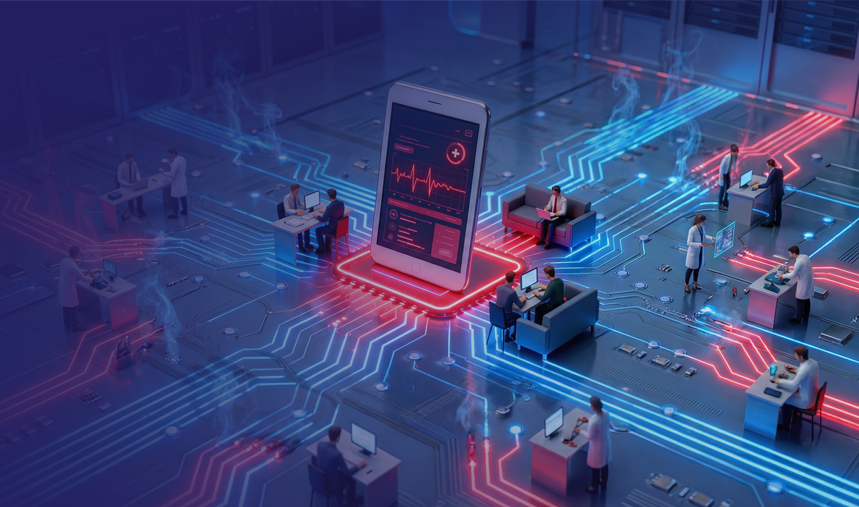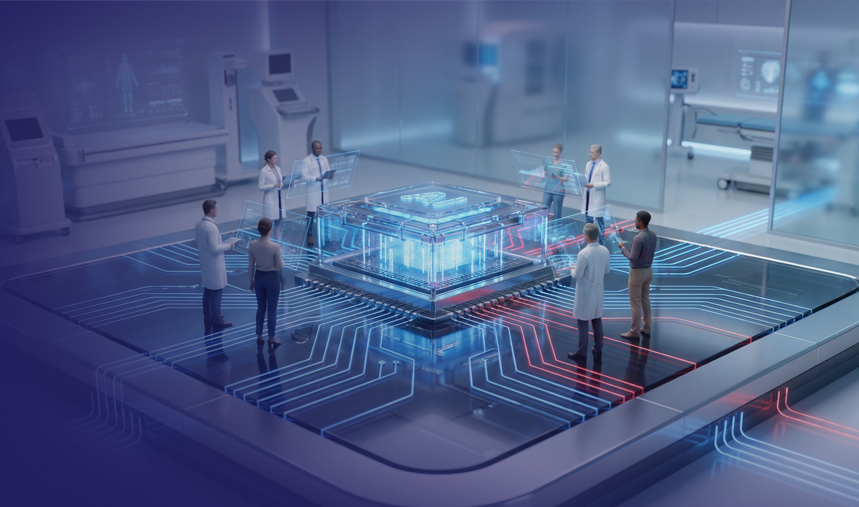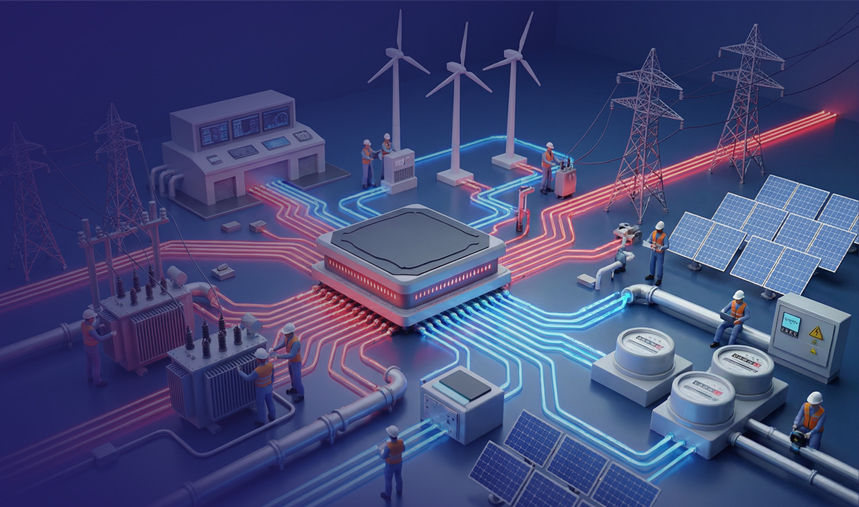What Is Web 3.0 Technology?
Web 3.0, or web3, is the third generation of the world wide web. The core principle of web 3.0 is openness and decentralization. To achieve this, web 3.0 relies on blockchain and other modern technologies to introduce greater security, efficiency and transparency. Web 3.0 is based on new principles and technical parameters, and promises to create a more immersive and personalized web experience.
Why Does Web 3.0 Matter?
Web 3.0 is the natural evolution of the world wide web, which is a foundational layer of the internet. Web 1.0 is the static, text-based, read-only web. Web 2.0 is defined by social media and interactivity. And web 3.0 is the open, decentralized, immersive web. Like previous generations of technology, web 3.0 promises to bring significant changes. Its emphasis on decentralization has the potential to reshape our society, the way we communicate, how we think about money and more.
How Does Web 3.0 Work?
Web 2.0 websites and applications rely on a centralized database to deliver the data and functionality you need. Instead of relying on a centralized database, web 3.0 applications and services use blockchain technology.
Web 3.0 also uses Artificial Intelligence (AI) and Machine Learning (ML) to generate faster and more relevant results. Combined, the technologies used to deliver web 3.0 will may give people greater control over their data, transactions, and online assets.
Key Features of Web 3.0
Several concepts help define web 3.0 and set it apart from the web you know today:
Decentralization
A key part of web 3.0 is decentralization. Rather than data being hosted on a centralized server, it is hosted on the blockchain. Information is shared using peer-to-peer connectivity. This is a big shift away from current centralized content storage and delivery protocols.
Ubiquitous Connectivity
Ubiquitous connectivity has been one of the goals of the web ever since it was created. Web 3.0 aims to bring us closer to an internet available for anyone, anywhere, at any time. With an ever-increasing number of devices connecting to the web and reliance on the Internet of Things growing rapidly, ubiquitous connectivity has never been more important.
Semantic Networks
Rather than relying on keywords to tag content, semantic networks will make information and data more machine-readable. Combined with artificial intelligence, this will gradually lead to more relevant search results. In web 3.0, machines will be better able to interpret human language, intent signals and infer meaning.
Artificial Intelligence
AI will be heavily used in web 3.0 to power semantic networks, helping machines identify the right content via deep learning algorithms and analytical capabilities. Rather than simply showing the most popular results, search engines will instead provide relevant answers based on a human-like understanding of the query. This should dramatically improve personalized recommendations and advertisements.
Blockchain Technologies
The blockchain is key to enabling decentralization across the web. Blockchain technology moves data from a centralized server to blocks of encrypted data that form a public digital ledger. These blocks are linked in a chain, making modifying or tampering near impossible. As a result, there is no need for a central body to govern the flow and quality of information.
3D Experiences
Web 3.0 will feature 3D graphics. This will create a more immersive experience for gaming, real estate, e-commerce, healthcare and more. Technologies enabling web 3.0 will also make interacting with the metaverse easier.
Advantages of Web 3.0
More companies are looking to digital technology services to evolve their technological processes and infrastructure. Web 3.0 delivers several benefits that you can capitalize on:
Creates a Personalized User Experience
Your experience will be more personalized than before. Content feeds will adapt automatically to your location, device, accessibility requirements and browsing preferences. General search results will be a thing of the past. Instead, results will be specific to your needs.
Enhances Data Security
Web 3.0 should give consumers and businesses more control over their data. Platforms and services will require explicit permission to share or access personal information. Blockchain technology should make it more difficult for bad actors to misuse or tamper with data, enhancing data security.
Increases Transparency
The blockchain helps ensure transparency is built into web 3.0, with distributed ledgers that everyone has access to. You can see how apps and websites are using personal and business data, and make informed choices about web usage and data sharing.
Reduces Intermediaries
Using the web today means putting your trust in a number of third parties. For example, most websites and services share your data for advertising and other purposes. Decentralization means that power is taken away from these intermediaries and handed back to the user. Interactions and transactions can happen directly between people rather than through a third-party platform or medium.
Improves Marketing Efforts
Marketers can deliver more targeted ads and be connected to customers directly without the need for intermediaries. This means target audiences can become more specific as web 3.0 technology narrows down who is shown certain content and advertisements. This means you can save money by only advertising to those likely to be interested in your products or services.
How to Prepare for Web 3.0
We’re edging closer to web 3.0 becoming a reality. More and more capital is being allocated to this space and the ecosystem is growing rapidly. So it’s important to get ready and prepare for the changes ahead.
Investments in Edge Computing
Edge computing is a catalyst and enabler of web 3.0. It provides the supporting infrastructure to enable quick and reliable blockchain transactions. Edge computing means moving computing capacity closer to data sources. This enables faster processing and lower latency.
Automation
Decentralization can make keeping track of operations and processes more difficult. Automation can assist with this, ensuring that recurrent and everyday processes continue and nothing is overlooked. Adopting a hyperautomation or intelligent automation strategy can help keep processes running smoothly as the world shifts toward web 3.0.
Cybersecurity
Like any new technology, web 3.0 introduces some security risks. Cybersecurity plays an important role for businesses in web 3.0, as the way data is stored and accessed is going to change. New approaches to cybersecurity will be needed, especially for those businesses and industries handling high-value or sensitive information.
Cryptocurrency
Some of the web 3.0 protocols will likely rely on the use of digital tokens and digital means of exchange. Therefore, it’s smart to stay informed on crypto developments.
Promote Web Access
Web 3.0 promotes ubiquitous connectivity, which means that anyone at anytime and anywhere can connect to and access the web. Promoting accessibility helps get you and your team ready for the development of web 3.0, supporting a digital workplace by providing secure and easy access. A digital transformation consulting agency can help to ensure your workers and customers have easy and secure access to software and solutions.
The Future of Web 3.0
Web 3.0 is continuing to be developed, but one thing is for certain: it will change how several sectors operate online, including banking, big tech, marketing and e-commerce. From improved marketing opportunities and enhanced customer experiences, early adopters of web 3.0 early will stand out from the crowd.




